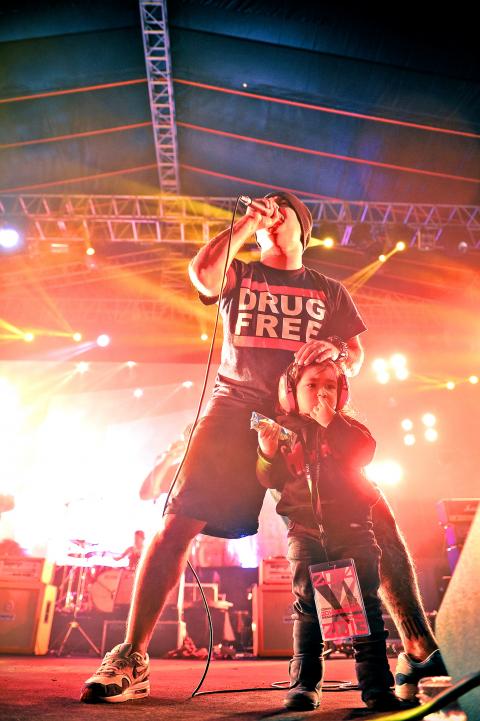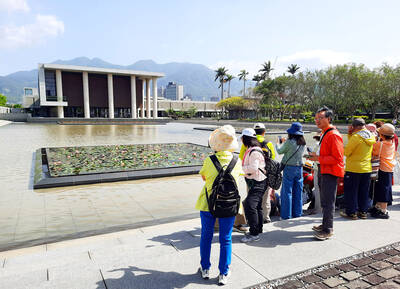You rarely come across people who are so supremely dedicated to both a form of music and the kind of lifestyle that music dictates than you do in the hardcore scene. Hardcore seems to breed lifers like no other genre. Roger Miret and Vinnie Stigma from Agnostic Front. Lou and Pete Koller of Sick Of It All. Madball’s Freddie Cricien. John Joseph of the Cro-Mags. All have stuck it out for decades through good times and bad, struggling against innumerable hardships and staying with the music they love not because they chose it, but because it chose them.
Another name that deserves to be mentioned in the same breath as those legends above is singer Riz Farooqi of Hong Kong’s seminal hardcore band King Ly Chee (荔枝王). For 15 years he’s worked tirelessly to promote hardcore in a place where he had to start from square one; where there was no local precedent for the kind of music he and his band took up, nor for the subculture it entails. It’s been an uphill battle, to say the least, one that he is still fighting. What’s kept him going all these years, while countless others have dropped out to pursue what might be called a more conventional world view, one in which that which is wrong with the world at large is accepted with numb passivity, is an innate social consciousness.
“I got into hardcore because I was already someone that was easily impacted by the world we live in,” says Farooqi of his beginnings in the scene. “Somehow I became a very socially aware and conscious person — I say it like that because it wasn’t something that I was taught. It just became something that I am.”

Photo Courtesy of King Ly Chee
It’s not been easy trying to build up a scene from scratch in a city in which the majority values material gain over activism and the vocal expression of dissent. To date, there are just two hardcore bands based out of the city. Shows are rare occurrences, and attendance can be sparse. To put it bluntly, hardcore just doesn’t jibe with Hong Kong on a cultural level, Farooqi says.
“Hong Kong is a very commercial and materialistic city. People chase the green here and rarely give themselves time to do anything artistic because it’s a waste of time and doesn’t help them achieve their goals of owning a home, a nice car, nice designer clothing. So when people don’t have that passion for the arts or find any value in it, then why would they be interested in underground culture, especially one that shuns fashion and anything insignificant like how you look on the outside?”
Of course, the recent Umbrella Revolution — protests calling for fully democratic elections in Hong Kong free of interference from Beijing — showed that there are those in their thousands in Hong Kong who are not afraid to raise their voice for a cause they feel passionately about. Though the protests were very much in line with the spirit of hardcore, they still had very little impact on the scene itself, according to Farooqi. However, like many things he observes going on around him, he was able to find something within the movement that he’ll be able to put into his music.
“The only thing that came out of it that actually got me so enraged that there definitely will be a song about it on the next record is the police’s collusion with triads. I cannot believe how open they were about that relationship and using it to intimidate protesters. Not only that, but there were countless instances caught on camera of police officers themselves acting like thugs and losing complete moral ground in Hong Kong. If something happens to my family, or me, the last people I would call in Hong Kong are the police.”
Before the next record comes around, though, there is the latest one to promote. CNHC, released late last year and put out by Magnum Music (馬雅音樂) in Taiwan, is full of anthemic, hard driving songs steadfast in the hardcore tradition, espousing perseverance, personal reflection and rebellion with Farooqi’s impassioned delivery at the epicenter. A video for the track Lost In A World, a song about finding a place to fit in via hardcore and rejecting the mainstream, features the bulk of the many band members who have come and gone over the years. Though Farooqi has stuck it out, finding others with a similar level of dogged determination has proven a tall order. Nevertheless, the willingness of ex-band mates to stand side by side with him in the video is a testament to the way the man handles himself, practicing the respect and dignity he preaches in his music, even if the initial parting of ways hasn’t always gone smoothly.
“A lot of the guys did not leave on good terms actually,” Farooqi says. “But time does heal all wounds and a lot of these guys have reached out to each other and found this amazing camaraderie and pride of being able to say that they were in King Ly Chee. To know that they are proud of their time in this band and especially proud to tell the world that they were in this band is a pretty amazing feeling to me.”
■ King Ly Chee plays tomorrow night at Bleed to Death (瀕死重生頭友會), a metal concert featuring bands from Hong Kong and Taiwan at Jack’s Studio (杰克音樂), B1, 76, Kunming Street, Taipei City (台北市萬華區昆明街76號B1). Tickets are NT$600 in advance, NT$700 at the door. Doors open at 6pm and the first band hits the stage at 6:30pm.

When the South Vietnamese capital of Saigon fell to the North Vietnamese forces 50 years ago this week, it prompted a mass exodus of some 2 million people — hundreds of thousands fleeing perilously on small boats across open water to escape the communist regime. Many ultimately settled in Southern California’s Orange County in an area now known as “Little Saigon,” not far from Marine Corps Base Camp Pendleton, where the first refugees were airlifted upon reaching the US. The diaspora now also has significant populations in Virginia, Texas and Washington state, as well as in countries including France and Australia.

On April 17, Chinese Nationalist Party (KMT) Chairman Eric Chu (朱立倫) launched a bold campaign to revive and revitalize the KMT base by calling for an impromptu rally at the Taipei prosecutor’s offices to protest recent arrests of KMT recall campaigners over allegations of forgery and fraud involving signatures of dead voters. The protest had no time to apply for permits and was illegal, but that played into the sense of opposition grievance at alleged weaponization of the judiciary by the Democratic Progressive Party (DPP) to “annihilate” the opposition parties. Blamed for faltering recall campaigns and faced with a KMT chair

Article 2 of the Additional Articles of the Constitution of the Republic of China (中華民國憲法增修條文) stipulates that upon a vote of no confidence in the premier, the president can dissolve the legislature within 10 days. If the legislature is dissolved, a new legislative election must be held within 60 days, and the legislators’ terms will then be reckoned from that election. Two weeks ago Taipei Mayor Chiang Wan-an (蔣萬安) of the Chinese Nationalist Party (KMT) proposed that the legislature hold a vote of no confidence in the premier and dare the president to dissolve the legislature. The legislature is currently controlled

Dull functional structures dominate Taiwan’s cityscapes. But that’s slowly changing, thanks to talented architects and patrons with deep pockets. Since the start of the 21st century, the country has gained several alluring landmark buildings, including the two described below. NUNG CHAN MONASTERY Dharma Drum Mountain (法鼓山, DDM) is one of Taiwan’s most prominent religious organizations. Under the leadership of Buddhist Master Sheng Yen (聖嚴), who died in 2009, it developed into an international Buddhist foundation active in the spiritual, cultural and educational spheres. Since 2005, DDM’s principal base has been its sprawling hillside complex in New Taipei City’s Jinshan District (金山). But